Perhaps I'm the only one noticing this, but there's been an influx of cool-girl bridal themes on my For You page recently. With more and more Gen Z weddings taking center stage as the years go on, micro-weddings, anthurium bouquets, and third (or fourth!) looks are gaining popularity among my close circle of friends in their mid-20s. Most of us can agree on the small aesthetic details of our future weddings based on our Pinterest boards, but when I started ring shopping earlier this year, there was no debate that lit up our group chat quite like the decision that I was exclusively looking at non-white diamond engagement rings.
Before you throw your arms up to protest my unconventional and, to some, downright ugly choice, just know I'm not alone. This year, there have been a few high-profile colored-diamond engagement rings that the internet has collectively lost its mind over. Gabbriette Bechtel's jet-black ring surrounded by brilliant-cut white diamonds was a fan favorite among alt Twitter, and Twilight star Christian Serratos's jaw-dropping 11.66-carat pink, pear-shaped engagement ring from Brilliant Earth made its way to the Instagram Stories of nearly every prospective bride I know.
Lorraine Brantner, a certified gemologist and James Allen sales manager, confirmed that there's been a massive surge in clients seeking out colored diamonds in lieu of white diamonds for engagement rings. Lab-grown stones are especially seeing a spike in interest, Brantner explained, alluding to the fact that the man-made options are coming at a much more affordable price point than earth-mined stones. James Allen also released a new Radiant Reflections collection of colored-gemstone fine jewelry for those who love the look but aren't getting engaged.
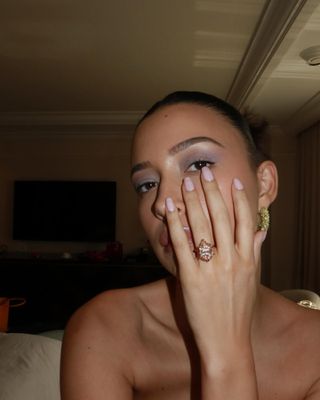
For some brands, colored diamonds have become their primary mode of business. Take Aaryah, for example. The Instagram-viral, cool girl–beloved NYC jewelry spot specializes in colored earth-mined diamonds. While founder and third-generation jeweler Megan Kothari does, in fact, sell colorless diamonds, you wouldn't know it from glancing at her brand's page. Since starting in 2021, Aaryah has been one of the biggest driving forces behind fiancés favoring unique bands, interesting cuts, and chicer hues in a world full of engagement rings that, frankly, look all the same at times.
"While I didn't start out with the intention to specialize in non-white diamonds, I was always drawn to their unique tones given to them by Mother Nature. No two feel the same," Kothari said. "My second collection ever in 2022 featured yellow diamonds in a fresh, unexpected way at a time when few others were doing so. After the success of that collection, I knew others like me were interested in these warmer hues."
The verdict seems to be in: More and more celebrities are opting for untraditional rings to mark their love and commitment to their partners. It's only now that the rest of the world is catching on.
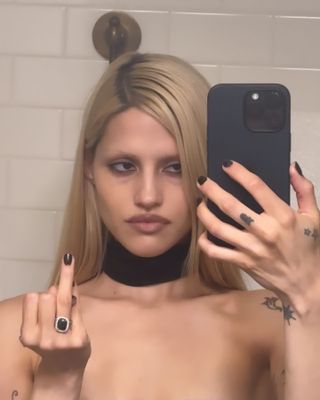
What is a colored diamond?
Colored diamonds are any stones that, like the name suggests, aren't white. Yellow diamonds, pink diamonds, and champagne diamonds are all included in the conversation along with brown diamonds, black diamonds, and salt-and-pepper diamonds. Colored diamonds are graded differently than white diamonds, which exist on the traditional D–Z scale, with D being a perfectly colorless, bright-white diamond. Most will exist in some variation on the fancy colored-diamond scale, which ranges from faint to fancy vivid. Anything from a light butter yellow to a deep, vibrant pink is possible within the scope of both lab-created and earth-mined diamonds.
"Fancy colored diamonds are evaluated for their hue (the color), saturation (intensity of the color), and tone (depth of the color)," Brantner explained. "Think of a fancy-color diamond falling within a three-dimensional box of possibilities compared to a diamond on the D–Z scale that shows a tint of color in a linear progression."
Brantner says that yellow and pink are typically the most sought-after fancy-colored diamonds for engagement rings, and 2024 purchases are signaling that yellow diamonds are dominating both the natural and lab-made diamond space.
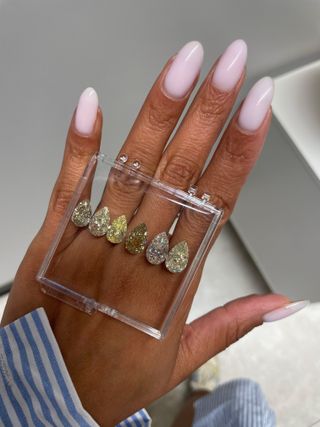
(Image credit: Courtesy of Aaryah)
How are colored diamonds made?
Given the fact that colored stones are much rarer, the conditions necessary to create them are as well. "For instance, yellow diamonds get their color from nitrogen, while pink diamonds develop their hue due to structural changes as the diamond forms deep in the earth," Kothari said. Larger colored diamonds are often sourced from specific regions and mines, she explained, adding that Australia is well-known for producing pink diamonds whereas South Africa and Canada are some of the world's top producers of yellow diamonds.
For lab-created yellow diamonds, nitrogen atoms are introduced during a diamond's growing process to give them their signature canary hue.
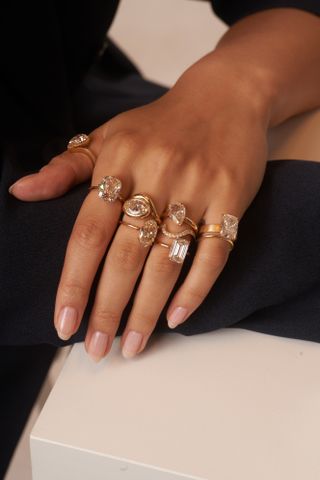
(Image credit: Courtesy of Aaryah)
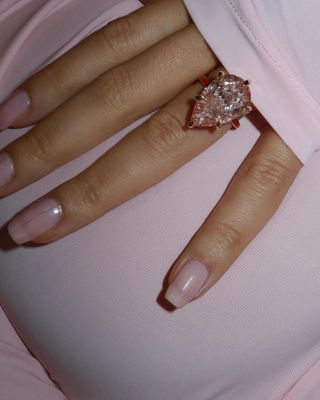
Are colored diamonds rare?
Traditionally, colored stones were an earth-mined-only product. The technology for lab-created diamonds has gotten better over the years, and slowly but surely, more subtle and realistic-looking lab diamonds are entering the marketplace. It's still a challenge, though, and I can attest to this firsthand. It took visiting six different brands and trying on at least 35 rings to source a diamond that aligned with my vision for a colored-diamond engagement ring.
"The color diamonds we work with typically fall in the K–Z range of the D–Z scale. That's where we're able to find those unique nude, buttery yellow, or even brown-toned diamonds," Kothari explained, nodding to the even rarer subtly colored diamonds her business has seen tremendous growth in over the last few years. Aaryah specializes in warmer champagne, nude, and brown earth-mined diamonds, so if you're looking for something within that palette, chances are you'll only find it at the brand's New York studio. Plus, if you're into a skin tone–esque diamond, the brand's new Nüd collection will meet you right where you're at.
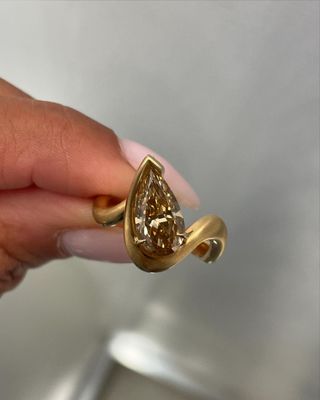
(Image credit: Courtesy of Aaryah)
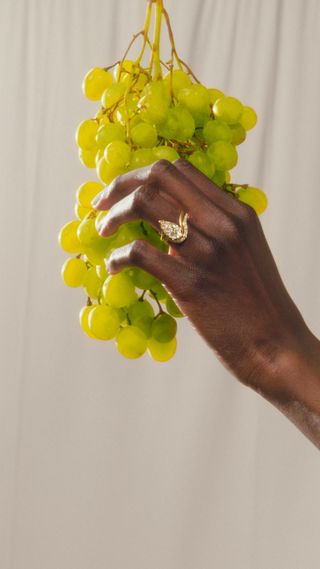
(Image credit: Courtesy of Aaryah)
Are colored diamonds expensive?
While colored diamonds do exist, they're much rarer and, as a result, come at a premium within both earth-mined and lab-created sectors—some even costing three times the price for a similar carat weight compared to their non-fancy-colored counterparts.
At the moment, most subtle-colored diamonds are only earth mined, meaning you'l be paying the price for naturally created stones. For reference, most of Aaryah's colored-diamond rings sit above the $15,000 price range, and carat weight and cut factor in significantly in how much an engagement ring costs, similar to non-fancy-colored rings.
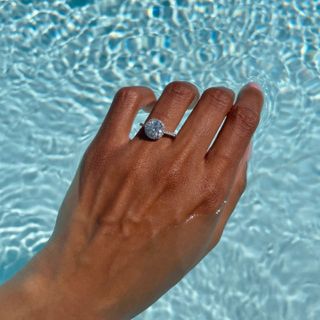

(Image credit: Courtesy of Aaryah)
Can anyone buy a colored-diamond engagement ring?
Of course. It is interesting to note, though, that both Brantner and Kothari agreed that most people who seek out a colored diamond for their wedding jewelry have a very clear, unconventional vision. "Our clients are typically very in touch with their own unique personal style and are looking for something that will be an extension of that versus a cookie-cutter engagement ring style that's more traditional," Kothari explained. With every colored-diamond ring that she promotes on Instagram, the ways they're set are also unique and more elevated for a fashion-inclined fiancé. "Additionally, we've had clients express an appreciation for the natural characteristics of mined diamonds, especially with the rise of 'super-perfect' lab-grown diamonds," Kothari added.
Shop colored-diamond engagement rings:
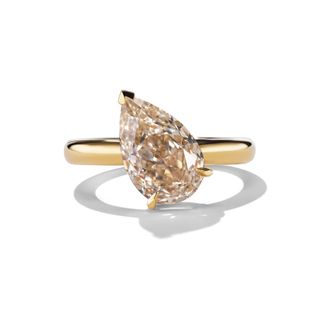
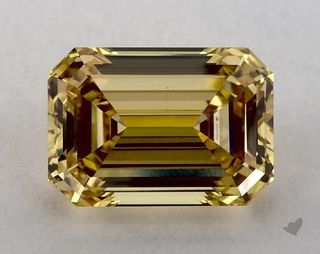
James Allen
Lab-Grown 4.32 Carat Fancy Intense Yellow-VVS2 Emerald Cut Diamond
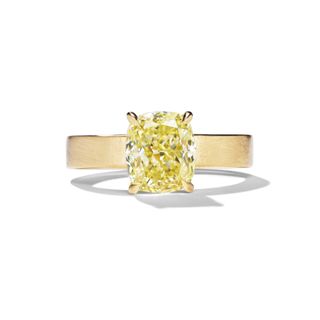
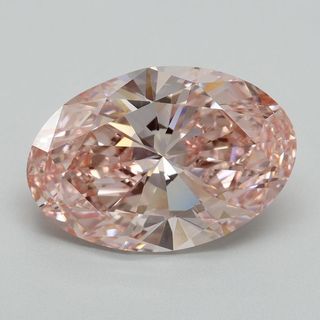
Brilliant Earth
5.01 Ct. Fancy Vivid Pink Oval Lab Grown Diamond
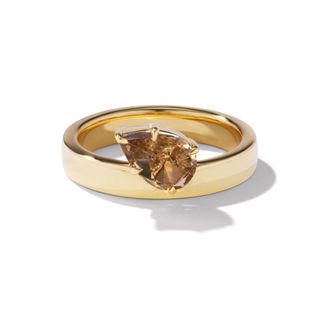
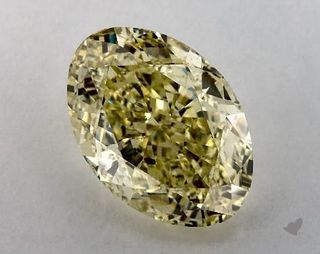
James Allen
Lab-Grown 9.82 Carat Fancy Intense Yellow-VS2 Oval Cut Diamond
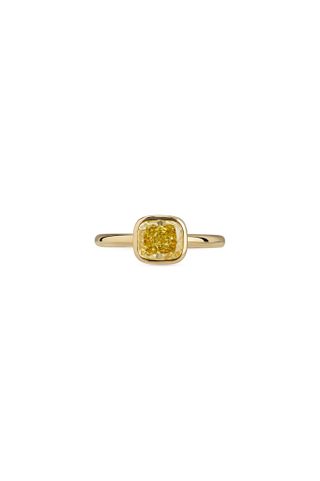
Mazarin
Yellow Cushion Solitaire
Price available upon request.
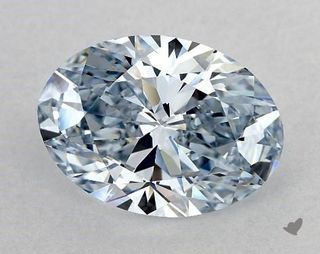
James Allen
Lab-Grown 5.18 Carat Fancy Intense Blue-VVS2 Oval Cut Diamond
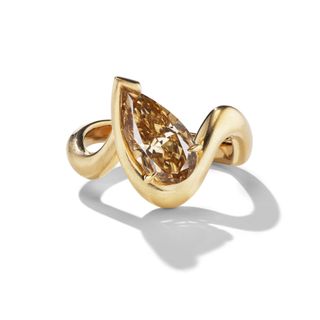
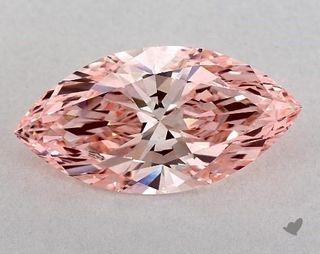
James Allen
Lab-Grown 5.43 Carat Fancy Vivid Pink-VS1 Marquise Cut Diamond
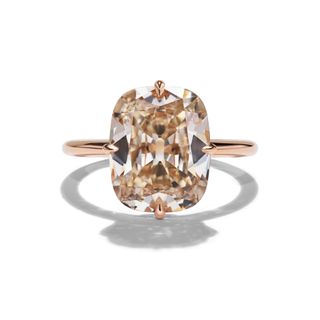
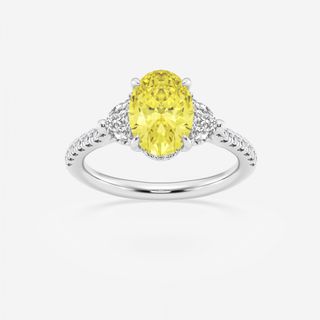
Grown Brilliance
2 3/4 CTW Fancy Yellow Oval Lab Grown Diamond Side Stone Engagement Ring Platinum
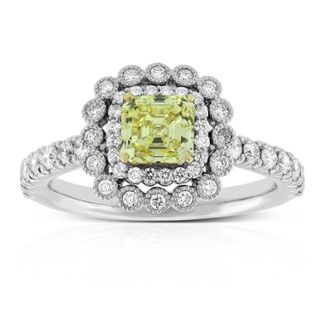
Ben Bridge
Fancy Intense Yellow Diamond Engagement Ring 18k, 9/10 Ct. Center




















 English (US) ·
English (US) ·